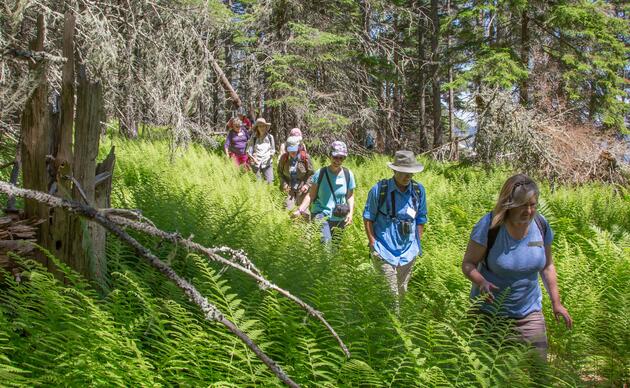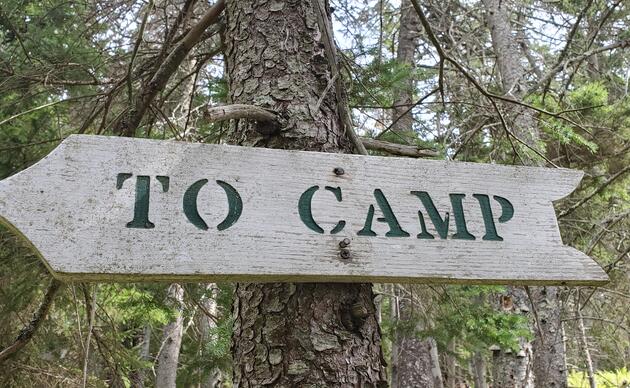June 2 – 3, 2025
Registration is open now for the 2025 Camp season! All campers must agree to the Camper Guidelines and Cancellation Policy. Please read this policy before registering.
Find answers to frequently asked questions about lodging, transportation, schedules, packing lists, meals, and more here. For technical support with CampDoc, please visit their help page or contact support@campdoc.com.
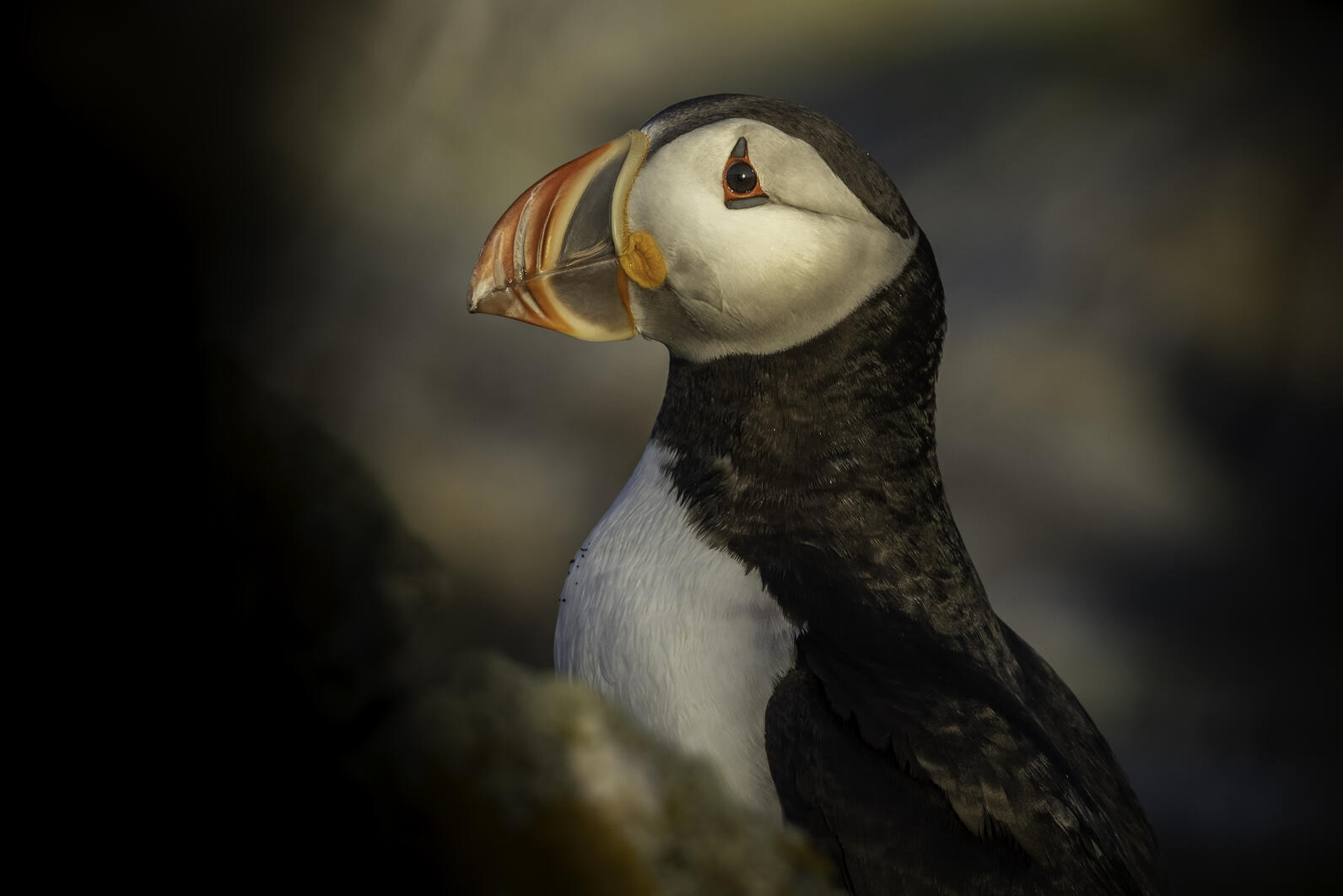
This overnight experience at Hog Island Audubon Camp will allow participants the rare opportunity to land on Eastern Egg Rock to see and photograph nesting puffins and terns where Project Puffin was born. You will get an up-close look at our conservation work and meet the researchers currently living and working on the island, spend time in the iconic blinds observing the birds that call Egg Rock home, and experience the pure magic of being surrounded by seabirds in the middle of a nesting colony. This trip includes a one-night stay at rustic Hog Island Audubon Camp, known for its role in establishing the contemporary environmental education movement.
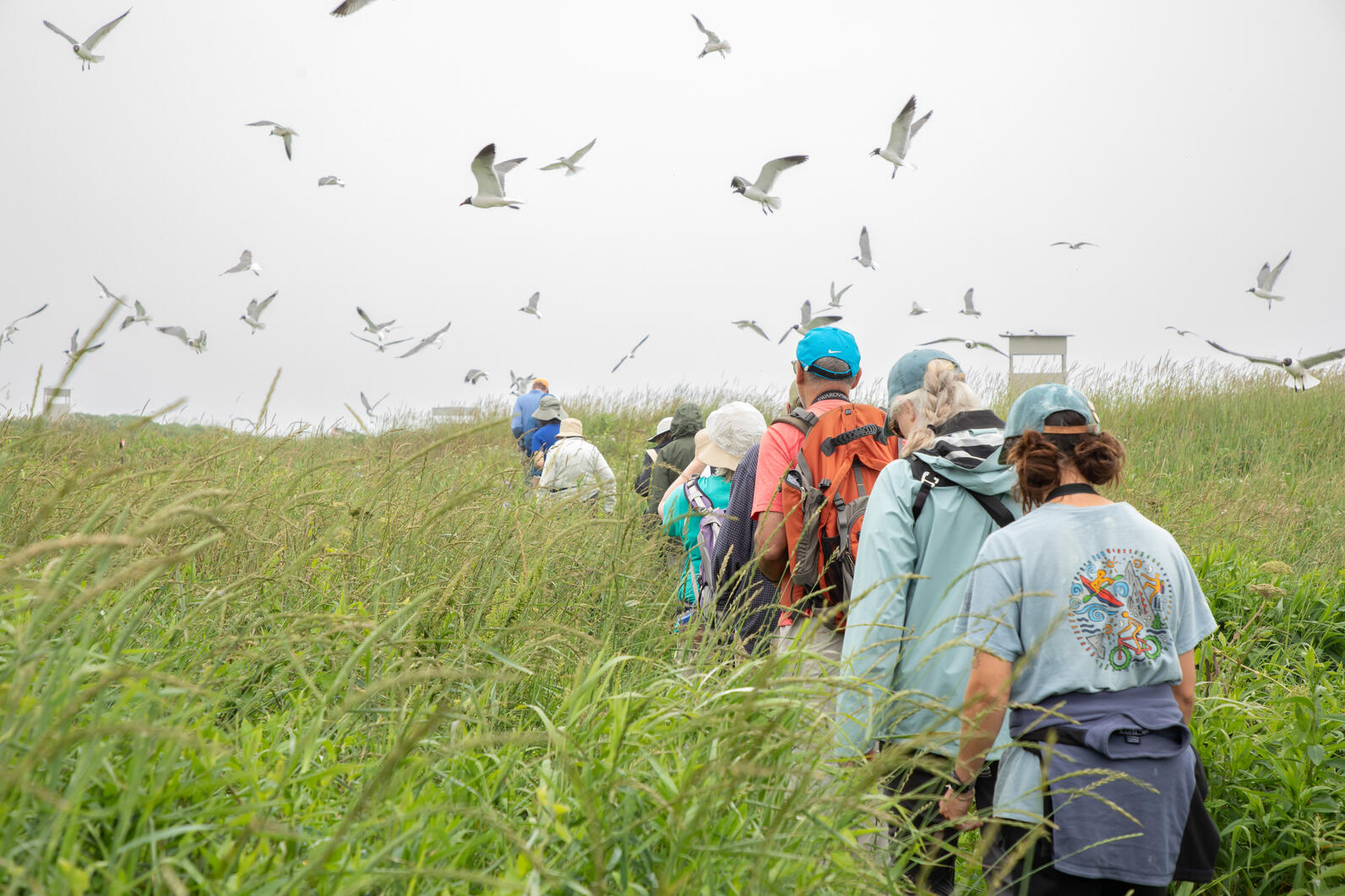
Pricing: $600
The base registration fee includes 3 meals (dinner, breakfast, lunch), housing on Hog Island, instruction, and the Eastern Egg Rock trip. This price is based on a standard shared room (with 2 twin beds) with a shared bathroom. A limited number of upgraded accommodations are available for an additional cost. Two upgrade options are a single room for solo travelers or a room with a private bath for two people traveling together. There are no single rooms with private bathrooms available. Please see our lodging page for more information.
Upgrades available for this session:
- $100/person - Single room with shared bathroom
- $150/person - Upgraded room with private bath: Guillemot, Eider, Osprey, Blackburnian (Double occupancy only)
- $200/person - Helm Cabin (Double occupancy only)
Transportation
Participants must arrange their own transportation to and from the Audubon dock in Bremen at the start and end of the session. Please see our transportation page for more information. Because this session ends in the afternoon, you will not be able to catch the Concord Coach bus on Tuesday, June 3. We can provide shuttle transportation to Damariscotta or hotels within a 5-mile radius of town on Tuesday, June 3. Please contact the Hog Island office at hogisland.audubon.org to arrange shuttle transportation for this session.
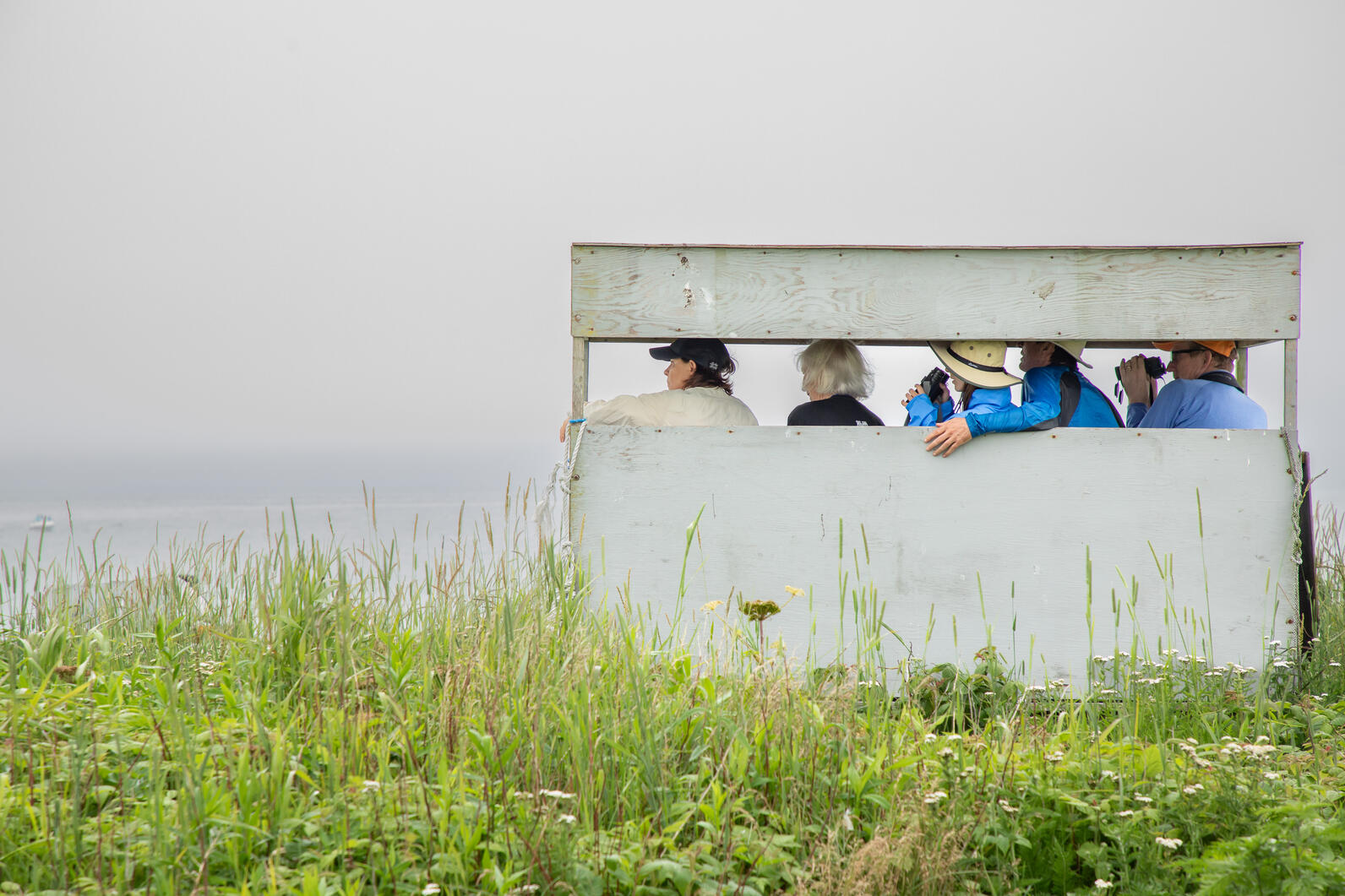
Itinerary:
Please plan to arrive on Monday, June 2 between 2-4 PM at the Hog Island dock. We will have a short welcome meeting, followed by dinner prepared by the Hog Island kitchen and an evening program on the History of Project Puffin.
On Tuesday, June 3, you will wake up to a breakfast and depart for Eastern Egg Rock. On the way out, we will look for harbor seals, porpoises, ospreys, and loons in Muscungus Bay. You will be rowed ashore to Eastern Egg Rock, where you will spend a few hours observing Atlantic Puffins and three species of terns nesting on the island. We will provide a sack lunch on Tuesday. You can plan to be back to the mainland and on your way home by 3 PM.
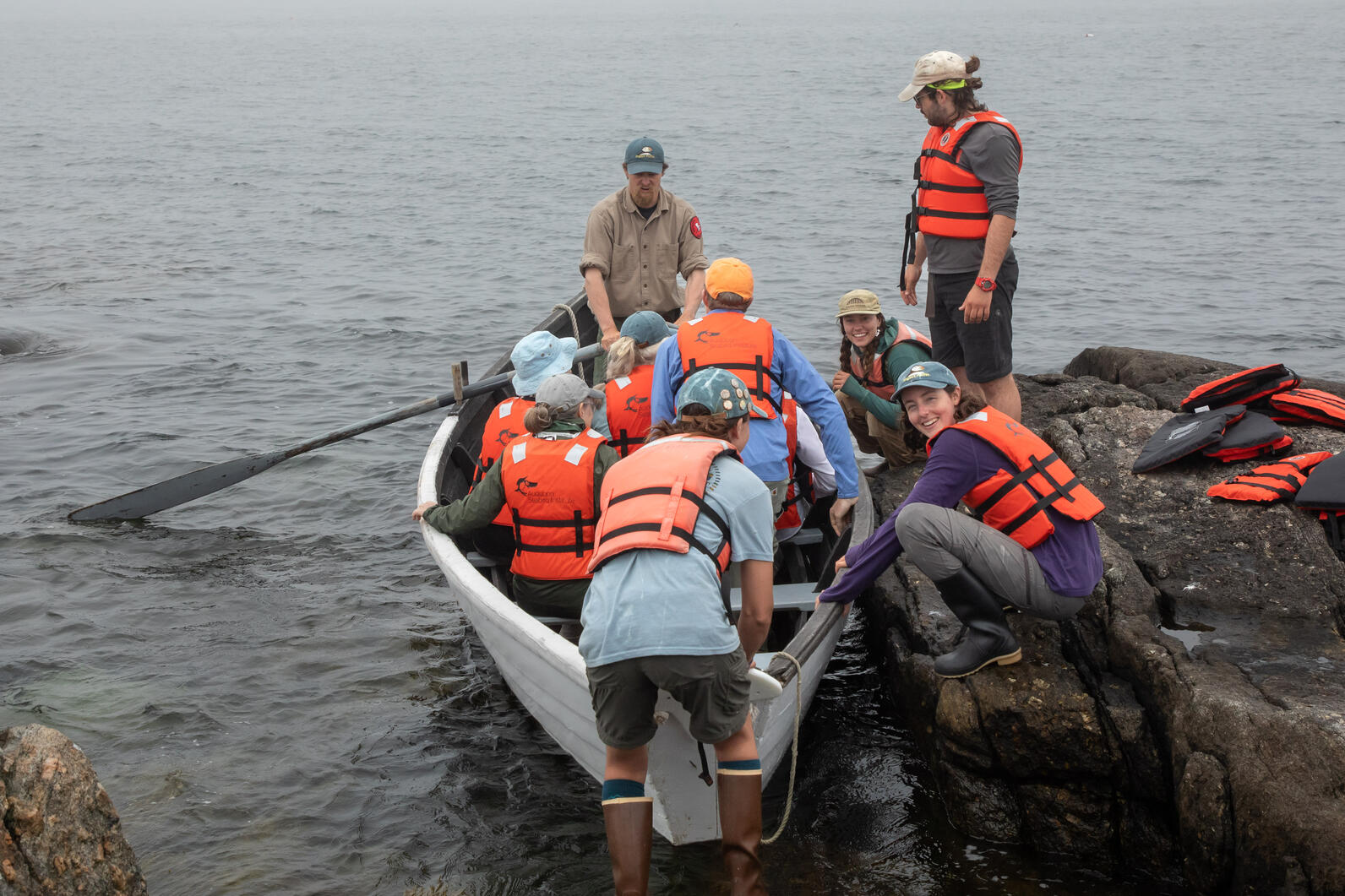
Landing on a seabird island requires participants to transfer from a tour vessel, to a dory, to the rocky shore in dynamic conditions. There is no dock and participants must be able to navigate boulders, slippery rockweed, and narrow, uneven trails to access the island. A degree of physical mobility is required.
This activity can be hazardous and participation is at your own risk. Participants are not required to go ashore and may stay on the boat.
Landing on Eastern Egg Rock is weather dependent and not guaranteed. Eastern Egg Rock is located approximately six miles offshore and is exposed to marine conditions. Windy weather and the motion of the ocean cannot be controlled. Participant safety is our highest priority and Audubon’s decision on whether to land is final.
If landing is deemed unsafe, participants will still visit Eastern Egg Rock and view seabirds from the vessel which provides a closer view than standard puffin cruises. Further, participants will learn more about the history and geology of Muscongus Bay while visiting other, nearby islands.
Participants must be 18 years of age or older to register for this program.

